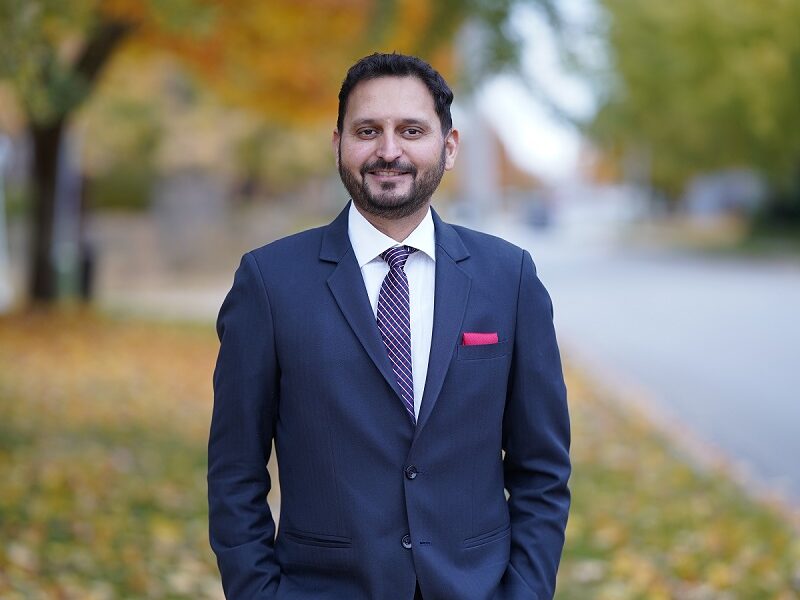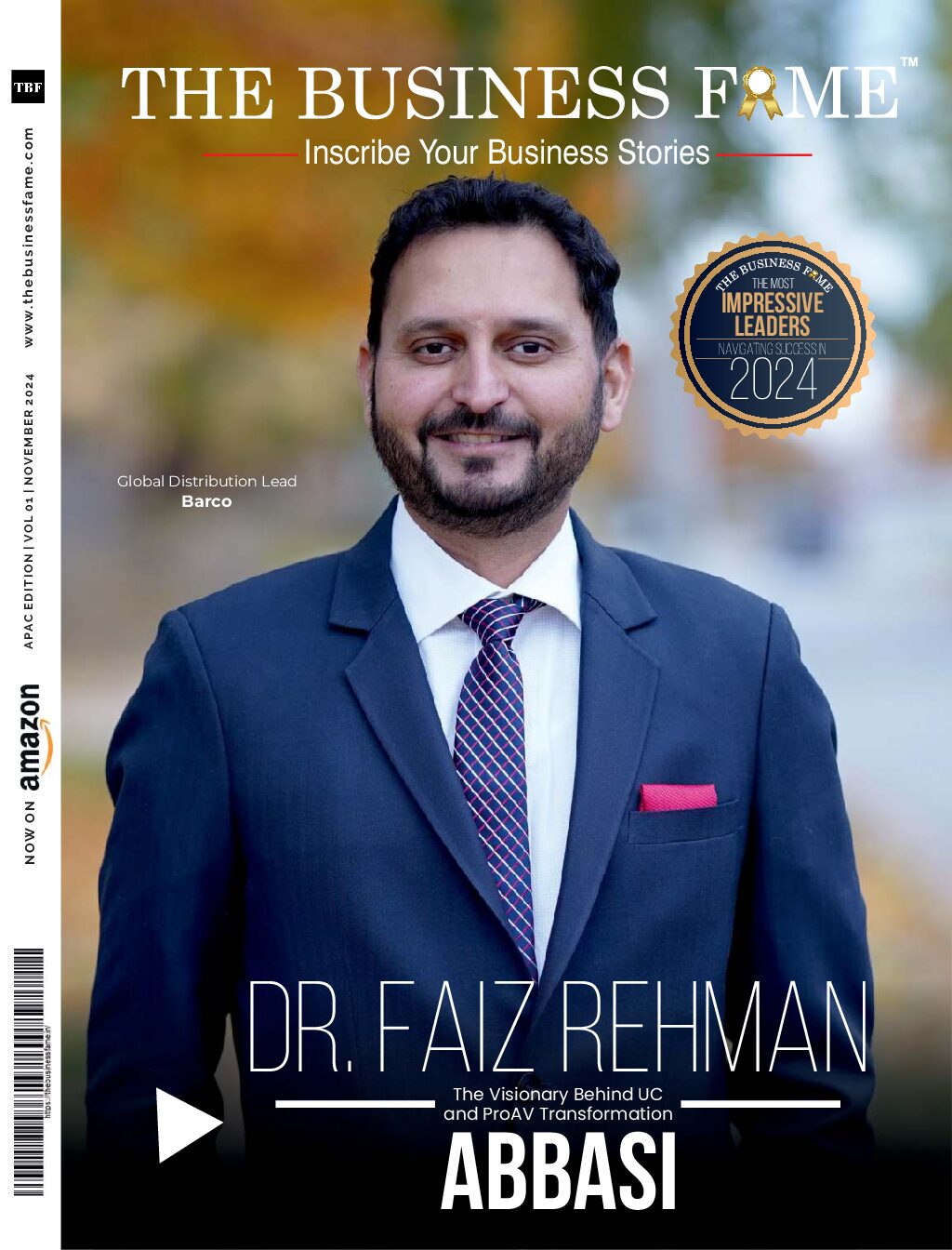Meet Faiz Rehman Abbasi, a results-driven executive with a people-first approach, renowned for his extensive experience in channel, sales, and partner management across the unified communications (UC), collaboration, and ProAV industries. With a strong track record of fostering profitable growth through strategic business plans and cultivating relationships with stakeholders, Faiz has established himself as a leader in driving transformation within the audio-visual and SaaS sectors.
Faiz’s transition into UC and ProAV was fueled by his deep appreciation for how technology can revolutionize human interaction. His expertise in projection and image processing technologies has allowed him to spearhead innovations that enhance communication and collaboration across organizations. As industries undergo digital transformation, Faiz is at the forefront of leveraging cutting-edge solutions, including AI, cloud computing, and interactive platforms, to create immersive experiences that push the boundaries of traditional communication.
A strategic and creative thinker, Faiz’s leadership has been instrumental in evolving ProAV from hardware-heavy systems to integrated, user-friendly platforms that span various sectors, including House of Worship, themed entertainment, and immersive projection-based experiences. His passion for the future of technology continues to drive his mission to elevate how businesses communicate and collaborate, positioning him as a visionary in the industry.
The Heart of Leadership
Faiz’s leadership style is built on a steadfast commitment to a people-first approach, a philosophy that has become the cornerstone of his success. He firmly believes that the strength of any organization lies in its people, and by putting the well-being, growth, and success of his team at the forefront of all decisions, he creates a foundation for long-term organizational success. Faiz knows that when team members feel supported, valued, and empowered, they naturally perform at their best, driving both individual and business success.
Faiz ensures that this people-centric approach positively impacts performance by focusing on three critical areas: cultivating a culture of trust, fostering open communication, and prioritizing professional development. Trust, for Faiz, is essential to team dynamics—it encourages team members to take calculated risks, make independent decisions, and contribute creatively without fear of failure. This environment fosters collaboration and innovation, which are vital drivers of business results.
Open communication is another cornerstone of his leadership. Faiz maintains transparency in decision-making, ensuring that his team is informed about the company’s goals, challenges, and successes. By implementing regular feedback loops, both formal and informal, he ensures alignment and addresses potential issues proactively, keeping the team unified and focused on shared objectives.
Faiz is deeply committed to investing in the professional development of his team. By creating opportunities for continuous learning and career advancement, he aligns individual aspirations with the organization’s objectives. This results in a motivated and engaged workforce, where employees see a future for themselves within the company. This alignment not only enhances individual performance but also strengthens the business as a whole, proving that when employees thrive, so does the organization.
Future-Proofing Tech
Faiz’s approach to staying ahead of industry trends is both proactive and multifaceted, reflecting his deep understanding of the fast-paced and ever-evolving technology sector, particularly in the UC (Unified Communications) and ProAV (Professional Audio-Visual) spaces. Recognizing that adaptability is essential, Faiz prioritizes continuous learning and strategic foresight to ensure his company remains competitive and innovative. He actively engages in constant learning through formal avenues such as attending industry conferences, webinars, and executive briefings. This structured learning keeps him updated on the latest advancements and shifts in the tech landscape. At the same time, Faiz leverages informal methods, like reviewing industry reports, reading white papers, and staying current with sector-specific publications, to deepen his understanding of emerging technologies and market dynamics.
Networking plays a pivotal role in Faiz’s strategy. He maintains strong relationships with industry peers, partners, and customers to gain early insights into emerging trends, customer needs, and potential market shifts. These connections allow him to stay ahead of the curve, as he’s often able to identify upcoming changes before they fully take shape. Customer feedback is a key component of this, as Faiz believes in engaging deeply with clients to understand their evolving pain points and ensure that his company’s solutions remain relevant and responsive.
Internally, Faiz emphasizes the importance of having an agile strategic planning process. This ensures that the company regularly reviews and realigns its goals with the changing market landscape, allowing for flexibility without compromising long-term objectives. By embracing this adaptability, Faiz positions his company to pivot quickly when necessary, while staying focused on sustainable growth.
In due course, Faiz’s strategy for staying ahead of industry trends hinges on being nimble, well-informed, and continuously aligned with market needs. This approach not only keeps the company competitive but also allows it to innovate and thrive in a rapidly changing environment.
Winning the Tech Sales Game
In the tech industry, where constant innovation and market fluctuations are the norm, sales executives must be equipped with a specific set of skills to thrive. Faiz identifies three key qualities essential for success: resilience, customer-centricity, and data-driven decision-making.
- Resilience: The tech landscape is dynamic, and sales executives often face frequent changes in customer needs, market trends, and product offerings. Resilience enables them to persevere through these challenges, handle rejections, and quickly recover from setbacks. The ability to maintain a positive attitude and stay focused on long-term goals, even in the face of adversity, is a fundamental trait for achieving sustained success in such a fast-paced industry.
- Customer-Centricity: As customers become more informed and selective, a personalized, customer-first approach is critical. Sales executives must prioritize understanding the specific pain points and goals of their clients, offering tailored solutions that align with their needs. Building trust and fostering long-lasting relationships with clients is key to maintaining customer loyalty and satisfaction. By focusing on delivering consistent value and being proactive in addressing client concerns, sales executives can differentiate themselves in a competitive market.
- Data-Driven Decision-Making: The role of data in sales has grown significantly in recent years. Successful sales executives now rely on data analytics to track performance, forecast trends, and refine their strategies. Leveraging data-driven insights allows them to make more informed, precise decisions, ensuring they can adjust their approach in real time to meet customer demands. This not only improves overall sales effectiveness but also helps in crafting more relevant and targeted solutions for their clients.
By combining these three qualities—resilience, customer-centricity, and data-driven decision-making—sales executives in the tech industry can navigate its challenges effectively and drive long-term success.
Aligned for Success
According to Faiz, building cohesive teams requires a thoughtful approach that fosters alignment, empowerment, and growth. He focuses on three core principles to develop strong, motivated teams: clarity of vision, empowerment, and continuous learning.
- Clarity of Vision: Faiz believes that success begins with every team member understanding the company’s overarching vision and how their individual contributions fit into it. By clearly communicating goals and ensuring alignment between personal roles and the company’s mission, team members can see the tangible impact of their work. This clarity fosters engagement and motivation, as employees recognize that their efforts are integral to the organization’s success.
- Empowerment: Encouraging autonomy is central to Faiz’s leadership style. He provides his team members with the ownership of their projects and the freedom to make decisions. This trust-based approach not only builds confidence but also allows individuals to take initiative, experiment, and grow their problem-solving abilities. While offering guidance and support, Faiz avoids micromanagement, enabling his team to feel empowered to drive results and nurturing emerging leaders within the organization.
- Continuous Learning: Faiz places a strong emphasis on ongoing development. He ensures that his team has access to training, mentorship, and learning opportunities, allowing them to expand their skill sets and take on new challenges. By fostering a culture of growth, Faiz actively encourages team members to step into leadership roles and continuously seek out ways to improve. This focus on development equips his team with the tools and confidence they need to assume greater responsibilities over time.
Through these principles, Faiz creates a cohesive, motivated team that thrives on shared purpose, personal growth, and the autonomy to innovate and lead.
The Dual Focus
Faiz understands that balancing operational execution with long-term strategic planning is essential for sustained business success. He emphasizes the importance of maintaining a dual focus that addresses both the immediate needs of the business and the overarching vision for the future. To achieve this equilibrium, Faiz implements a clear strategic roadmap that not only guides the company’s long-term objectives but also ensures that daily operations are consistently aligned with these goals.
Working closely with his leadership team, Faiz ensures that robust operational processes are in place. This includes establishing clear workflows, defining performance metrics, and creating accountability structures. By building a solid operational foundation, Faiz guarantees efficiency and consistency in the company’s day-to-day activities, enabling the organization to perform seamlessly and reliably.
In parallel with managing current operations, Faiz dedicates significant time to strategic planning. He regularly reviews market trends, gathers customer feedback, and assesses internal performance to ensure that the company’s long-term goals remain relevant and attainable. Faiz views strategic planning as an ongoing process rather than a one-time task, recognizing the necessity of making regular adjustments in response to both internal dynamics and external market factors.
By aligning short-term actions with long-term vision, Faiz successfully creates a balance that allows the company to execute efficiently while simultaneously positioning itself for future growth. His holistic approach ensures that the organization remains agile and responsive to change, fostering an environment where strategic initiatives and operational excellence go hand in hand. This methodical balance not only drives current performance but also lays a strong foundation for sustained innovation and expansion, securing the company’s place as a leader in its industry.
Through his adept management of both operational and strategic facets, Faiz exemplifies how thoughtful leadership can harmonize immediate business demands with future aspirations, ensuring enduring success and competitiveness in a rapidly evolving marketplace.
Building Trust in a Virtual World
Managing stakeholder relationships in a digital-first world requires a combination of transparency, empathy, and adaptability. Faiz emphasizes that prioritizing communication is essential to ensuring alignment and avoiding misunderstandings. In a digital environment where face-to-face interactions may be limited, clear and consistent communication becomes even more critical. Setting expectations early and maintaining regular check-ins through tools like video conferencing, emails, or collaboration platforms helps keep everyone informed and fosters a strong sense of connection despite the virtual nature of interactions.
Building trust is another cornerstone of effective stakeholder management, and Faiz highlights the importance of being transparent, delivering on promises, and remaining open to feedback. Trust takes time to establish, but it is vital for long-term success. In a digital-first environment, where personal interactions may be infrequent, it’s even more important to demonstrate reliability and integrity. Trust strengthens relationships, and maintaining it requires consistent actions that reflect transparency and accountability.
Lastly, leveraging digital tools effectively can greatly enhance stakeholder relationship management. Technology can automate administrative tasks, provide real-time updates, and improve collaboration, making day-to-day operations more efficient. However, Faiz advises that while digital tools are helpful, they should not replace the human element of relationship-building. Personal touches—such as a phone call, a handwritten note, or a thoughtful message—are invaluable for maintaining strong, meaningful connections. By combining the efficiency of digital tools with personal gestures, executives can foster stronger, more resilient stakeholder relationships.
Cultural Synergy
Faiz highlights that managing international partnerships comes with unique challenges, such as navigating cultural differences, overcoming language barriers, and dealing with time zone discrepancies. One of the most significant hurdles he has encountered is aligning the interests and objectives of diverse stakeholders across different regions while ensuring consistency in brand values and business goals. To address these challenges, Faiz emphasizes the importance of clear communication and setting expectations early on. By establishing strong communication protocols and ensuring all parties are aligned on goals and deliverables, potential misunderstandings can be minimized. Regular, scheduled meetings—whether virtual or in-person—also help maintain rapport and keep everyone on the same page.
Cultural adaptability is another essential factor Faiz prioritizes in managing international partnerships. He makes it a point to understand the cultural nuances of each region he works with, which helps in fostering stronger relationships and facilitates more effective problem-solving and collaboration. Recognizing and respecting local customs, business practices, and market dynamics is crucial to ensuring that the partnership thrives.
Lastly, Faiz underscores the importance of flexibility. Since each region presents its own set of challenges, a one-size-fits-all approach is rarely effective. He collaborates closely with partners to tailor strategies that fit local market conditions while still adhering to the overarching objectives of the business. This adaptability, he believes, has been key to fostering long-term, successful partnerships that are mutually beneficial.
Mentorship in Action
According to Faiz, coaching emerging leaders requires a blend of mentorship, empowerment, and real-world learning opportunities. His approach focuses on developing both hard and soft leadership skills, while also instilling resilience and adaptability—critical traits in fast-paced industries. Faiz begins by identifying each individual’s strengths and areas for improvement, tailoring his coaching to their specific needs. Mentorship is a key part of this process, where he shares his experiences, offers guidance, and advises on navigating challenges.
However, Faiz believes that true leadership development happens through experience. He ensures that emerging leaders are given opportunities to lead projects, make decisions, and tackle challenges directly. This hands-on approach helps them gain practical knowledge and confidence. In industries where change is constant, resilience becomes essential, and Faiz coaches leaders on how to manage uncertainty, handle pressure, and make decisions with incomplete information. By encouraging a growth mindset and framing challenges as opportunities for learning, he helps them build the confidence and skills necessary to succeed in dynamic environments.
The Triad of Leadership
To thrive in a multifaceted executive role, Faiz identifies three core competencies as essential: strategic thinking, emotional intelligence, and the ability to drive cross-functional collaboration.
Strategic thinking serves as the foundation for any executive position. It is crucial to grasp the big picture while also understanding the intricate details of various business functions. In the realms of distribution and channel management, comprehending current market dynamics and anticipating future trends is vital. This capability enables informed decision-making that aligns both short-term needs and long-term objectives. A strong strategic mindset allows executives to foresee market shifts, identify growth opportunities, and navigate challenges confidently.
Equally critical is emotional intelligence, particularly when managing diverse teams and stakeholders. The ability to understand and manage one’s own emotions, alongside those of others, fosters stronger relationships and encourages collaboration, creating a positive work environment. Emotional intelligence equips executives to handle difficult conversations, resolve conflicts, and lead with empathy—an approach that is key to motivating teams and managing the complexities of global partnerships.
Finally, cross-functional collaboration is essential in a multifaceted role. Executives must unify teams from different departments, each with distinct goals and challenges, aligning them toward a common vision. Achieving this requires strong communication skills, the ability to break down silos, and a collaborative mindset that promotes innovation and shared ownership of results. Together, these competencies form the cornerstone of effective executive leadership in today’s complex business landscape.
Shaping the Future of AV Innovation and Leadership
As Faiz looks to the future, his personal goals center around driving innovation in the Audio-Visual (AV) and ProAV industries while nurturing the next generation of leaders. He is particularly excited about the potential of emerging technologies, such as projection and image processing, artificial intelligence, and immersive experiences. These advancements promise to reshape how the industry delivers more engaging, immersive, and seamless experiences across various sectors.
In terms of career growth, Faiz aspires to assume strategic leadership roles that enable him to influence the direction of the AV and ProAV industries on a global scale. Through thought leadership, mentorship, and collaboration with fellow innovators, he aims to help create a future where technology enhances communication, collaboration, and visual storytelling in unprecedented ways.
Additionally, Faiz is passionate about sustainability and ethical leadership within the industry. He plans to focus on leveraging ProAV solutions to drive positive social and environmental impact. By fostering a culture of innovation within his teams and staying ahead of industry trends, Faiz is confident in his ability to contribute to the ongoing success of both his organization and the broader AV and ProAV industries.










